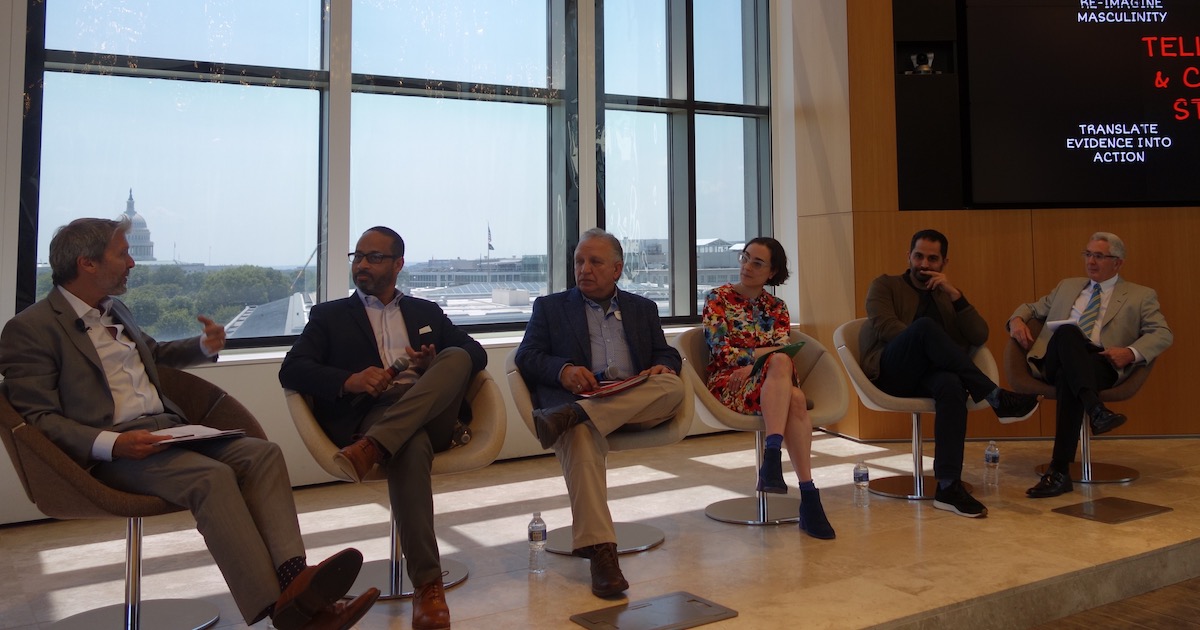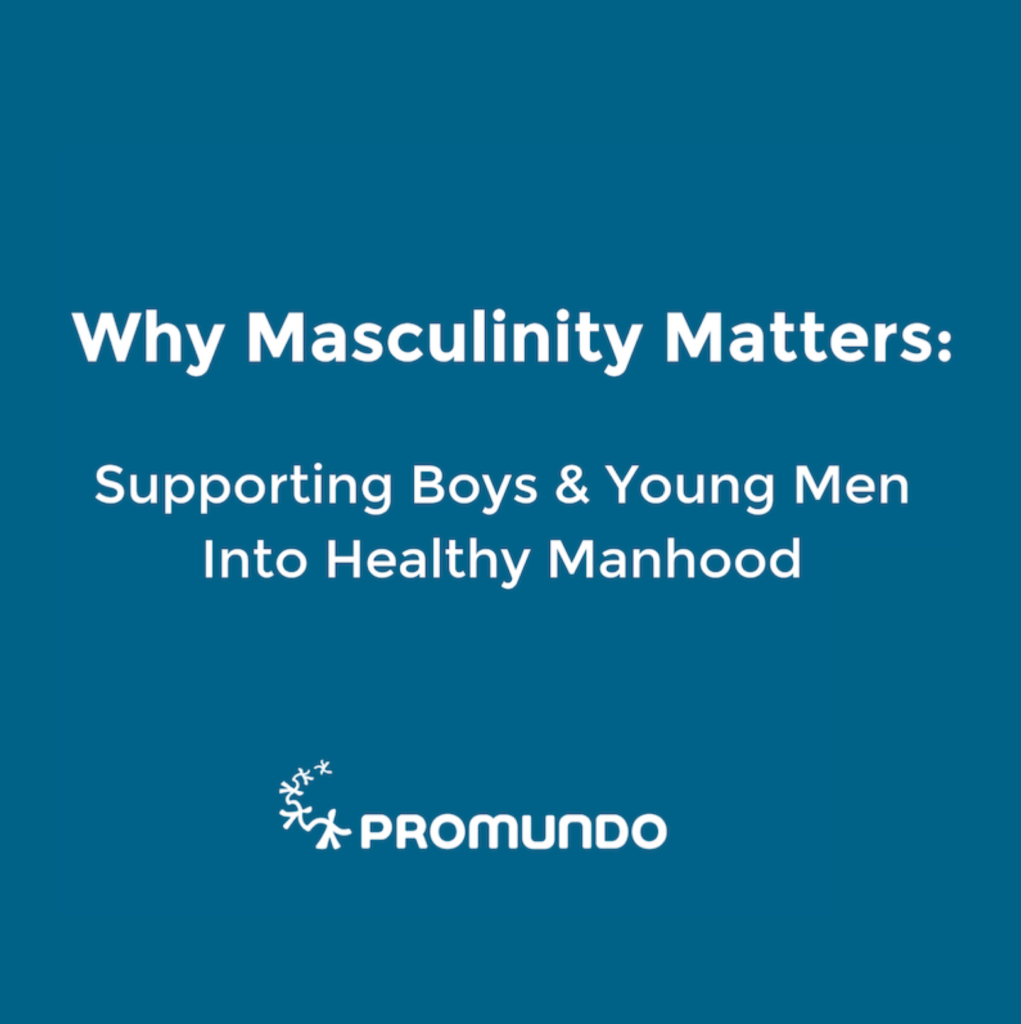
On May 2, Equimundo, the Center for Research on Men’s Health, Vanderbilt University, and partners convened in Washington, DC to discuss how masculine norms impact men’s health and the well-being of those around them, and to provide concrete guidance for action.
Equimundo President and CEO Gary Barker opened up the event by asking why we, as educators, health professionals, and activists should care about masculinities. To frame the discussion to follow, he said:
“We’re not talking about manhood in the abstract. We’re all in it, we’re making it, we’re reconstructing it, and we’re building it.”
Why do masculine norms matter?
Gary presented key findings from two Equimundo reports, The Cost of the Man Box: A study on the economic impacts of harmful masculine stereotypes in the United States and Masculine Norms and Men’s Health: Making the Connections, highlighting the financial and health costs of harmful masculinity for both individuals and society as a whole. He concluded his presentation with a hopeful note for the future, saying:
“It’s important that as we hold up these norms or questions these ideas around masculinity, that we don’t fall back on that deficit perspective on our sons, on young men, and on ideas about manhood. The fact is, our sons are ready to break out of this.”
Bringing in expert voices
After the opening, speakers offered their expertise and personal insights to the discussion. The first speaker, Dr. Derek Griffith, Founder and Director of the Center for Research on Men’s Health and Professor of Medicine, Health, & Society at Vanderbilt University, provided a racial, historical, and political context for thinking about men’s health. Dr. Griffith looked back to the Memphis Sanitation Strike of 1968, a strike led by Black sanitation workers, emphasizing that the men’s aspiration for equal opportunities and the right to work in safe environments was seen as being a fundamental part of who they were as men, at that time. He reminded the audience why it’s important to acknowledge the nuances of men’s expansive identities, and what negative – or positive qualities – may be associated with the idea of “being a man” at different points in history, and based on which identities men hold aside from their gender, saying:
“There are harmful aspect of masculinity that we should talk about, but some of the norms that have negative impacts on health may actually be coming from a positive place.”
The second speaker, Randy Palacios, a Youth Representative for the Partnership for Male Youth Board of Directors, shared his personal journey with masculine norms as a young boy growing up in El Salvador. He recalled being told that “men are supposed to be strong, so don’t ever talk about this,” after witnessing an extreme act of violence, and explained how this narrative affected how he has expressed compassion and empathy into his adulthood. Randy emphasized the importance of speaking to young men about their own health and giving them the vocabulary to identify and speak about their emotions and needs. In doing so, we can help ensure that young men learn how to express themselves – without aggression or violence – and to ask for help when they need it.
Building off the masculine stereotypes and narratives identified by previous speakers, the third speaker, Wizdom Powell, Director of the Health Disparities Institute at the University of Connecticut, and President-Elect, Society for the Study of Men and Masculinities (Division 51), American Psychological Association, explained why we need to build a fuller understanding of men’s health and how we can disrupt singular stories around masculinity and mental health. She said:
“The way forward is to tell whole and complex stories. We have to reimagine masculinity. We have to invest in systems change. We have to translate the evidence into meaningful action.”
Reflections from the panelists
After the speakers laid out the landscape for why we should be talking about masculinity and mental health, the panel of experts discussed with the audience ways to move forward, and to co-create the positive norms that will lead to better health and well-being for young men and for all individuals, as well as advance gender equality. The panelists emphasized using the power of media to foster healthy masculine norms, funding community efforts that provide spaces for men and boys to make meaningful connections, and creating more resources for health practitioners, such as the APA’s Guidelines for Psychological Practice With Boys and Men.
The full recording of this event can be viewed here:
